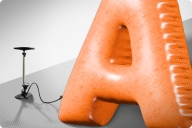You have /5 articles left.
Sign up for a free account or log in.

Getty Images
Modesty is a virtue, right? Maybe not, at least when it comes to academics. A new study suggests that intellectual arrogance is linked to better grades -- if not being perceived as a better team player.
“Contrasting self-report and consensus ratings of intellectual humility and arrogance,” in the current Journal of Research in Personality, involves two studies. Both were designed to compare and contrast students’ self-ratings of their intellectual humility with the ratings of peers who were mere acquaintances, and also peers with whom they’d worked over several months.
The authors define intellectually humility -- a hard-to-pin-down term, they admit -- as having an accurate or modest view of one’s intellectual abilities while being open to criticism and new ideas.
They assert that some level of intellectual humility is to be expected in academic work, based on a high-performing academic’s presumed interest in finding the truth over being right. Previous research suggests a correlation between students’ grades and an implicit measure of humility.
But the results -- that students with lower intellectual humility got better grades at the end of the course, over all -- challenged that understanding. Put another way, students with greater intellectual arrogance, or an exaggerated view of their abilities, correlated with better individual grades.
The intellectually arrogant did not fare as well when they were rated by their peers, however.
Lead author Benjamin R. Meagher, a visiting assistant professor of psychology at Franklin & Marshall College, said that his findings have implications for how students are evaluated.
One part of the study suggests that “self-rated arrogance predicted better performance on individual work, like tests, whereas self- and peer-reported humility did not,” Meagher said. “But in a group project context, when peers were given the opportunity to evaluate the work of their group mates, they clearly recognized and rewarded the people they saw as high in intellectual humility.”
In the first study, students who had just met took part in a group task designed to require creative thinking, intellectual skills, such as math and verbal abilities, and consideration of one’s own strengths and weaknesses -- all of which were supposed to reveal high or low levels of intellectual humility.
Some 135 students in this phase were split into groups of three to five. They spent about 45 minutes together working through a theoretical problem in which they had to imagine they had extra fingers. They also discussed their strengths and weaknesses.
The second study asked groups of students enrolled in a college course using a team-based learning method to form a consensus about team members’ intellectual humility.
Some 103 undergraduates in an upper-level psychology class in that phase of the research worked for a full semester in groups of four to six, doing individual as well as joint tasks. At the end of the term, they took individual and group tests and then gave feedback on each other’s work.
Each student in both studies completed a questionnaire about the personality of each group member, including him or herself. Students assessed their own intellectual humility and that of their peers based on such criteria as being open to criticism and possessing awareness of one’s strengths and weaknesses. They also assessed each other’s intellectual arrogance, based on being closed-minded, or not, and believing in the superiority of one’s ideas.
The questionnaire involved additional trait questions, such as openness, sense of humor and assertiveness.
Personality traits correlated with intellectual arrogance, according to the group rating, were dominance, extroversion and wanting to be the center of attention. Arrogance was negatively linked to agreeableness and conscientiousness.
Group raters reached a statistically significant consensus about various members in the semester-long scenario, not the quick one -- but even the consensus was “idiosyncratic,” Meagher said, meaning that humility and arrogance are hard to detect unless there are extended opportunities for interaction.
Individuals were often unaware of how others saw them, in terms of humility, in both cases.
Meagher said that was the key takeaway of the study.
“Not only is there relatively minimal overlap between the two, they predict quite different things,” he said. “Viewing yourself as arrogant actually predicted better grades, whereas viewing yourself as humble did not -- and instead seemed to be correlated with having an overblown, positive view of yourself.”
But if other people thought a student was humble, he said, respondents “tended to rate your work and contribution more positively. So clearly there is a disconnect between self-appraisals and the judgments of peers on these traits.”
Regarding the relationship between arrogance and individual grades, Meagher said it probably wasn’t that surprising, after all.
It’s “more likely that students who get better grades are acutely aware of that fact, and they therefore, perhaps rightly, believe that their ideas are the best in the group,” he said. “At the very least, though, a willingness to acknowledge to yourself that you believe that your ideas are better than the others' did not appear to negatively affect the subsequent grade.”
And even when intellectually arrogant people are rated by their peers, it’s still possible for them to do well, Meagher said. “In those contexts, they are people being dominant, extroverted and in control of what is going on, so groups likely recognize the fact that they are getting things done -- even if interpersonally they are not particularly well regarded.”









